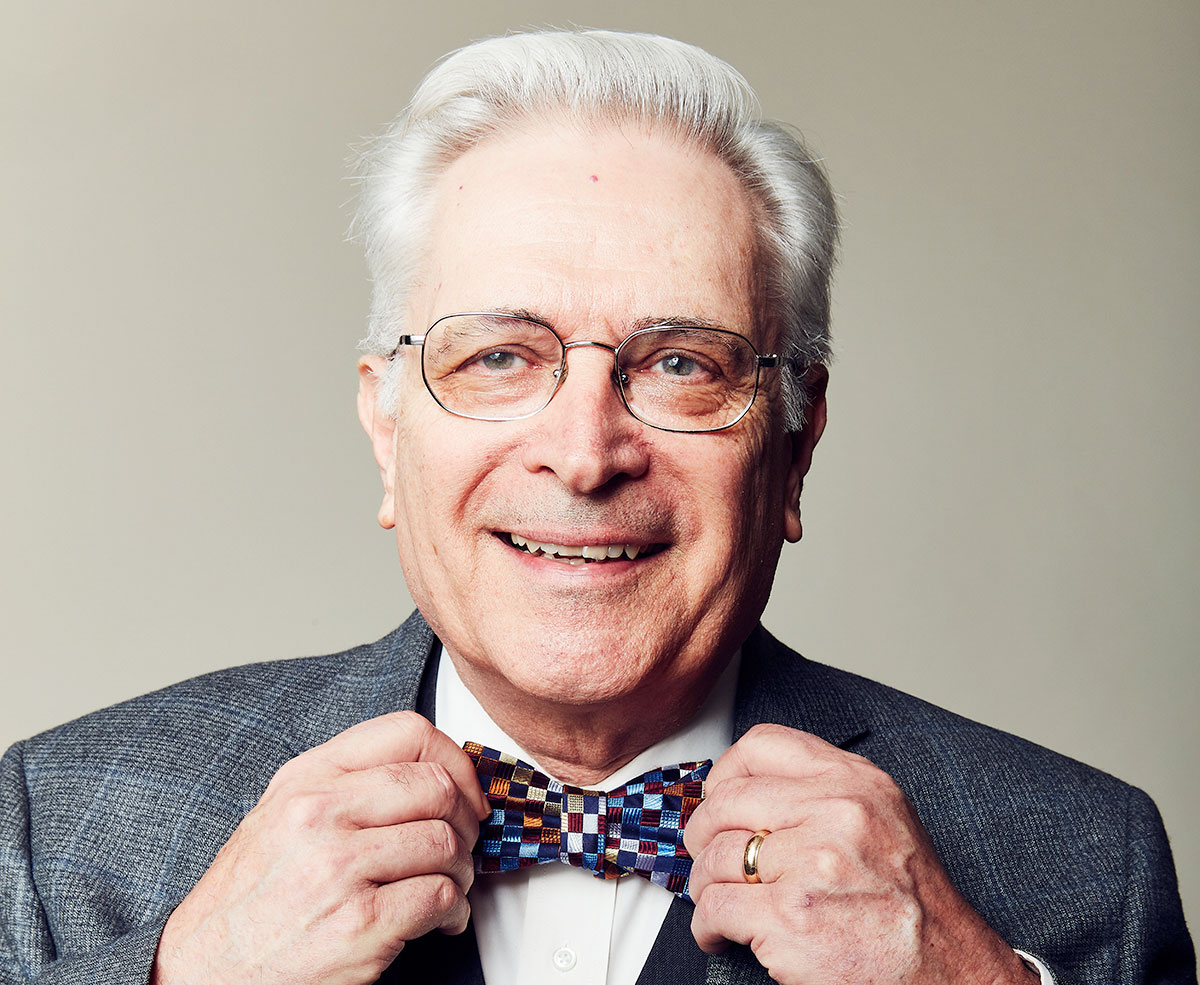
Roy Taylor: The Man Behind the Bow Tie
Dr. Roy Taylor eludes categories. He didn’t graduate from a reformed college or a reformed seminary. He was raised a Baptist and will be buried in the Baptist churchyard. Yet, he has served for over two decades as the Stated Clerk of the largest evangelical Presbyterian denomination in America.
Roy Taylor admits his pathway to becoming the Stated Clerk of the Presbyterian Church in America has been unconventional. Yet, looking back, the hand of God’s providence is very evident. As Dr. Taylor prepares to retire as the longest-serving clerk in the denomination’s brief history, we sat down with him to learn a little bit more about the man behind the bow tie.
“I was born to be a minister”
Roy Taylor was born to L. Roy Taylor, Sr. and Clara Kyzer Taylor in Birmingham, Alabama on August 12, 1944. Dr. Taylor’s father had started down the pathway for ministry himself but was detoured after his first wife died. Instead, he met and married Clara Kyzer with whom he had three children, Dr. Taylor being the youngest of the three. Whether it was divine guidance or paternal aspirations, Dr. Taylor’s father had told his mother they would have a son who would have the ministry he never had.
Three months after his birth, his father died. His father’s heart had been damaged as a child from rheumatic fever and medical technology had yet to be developed to repair it. Now a single mother, Dr. Taylor’s mom picked up the family and moved to Tuscaloosa to live with her mother and father. The woman who worked at the local dime store to provide for her children recently passed away just four days shy of her 106th birthday.
After three years in Tuscaloosa, his mother married James F. Stewart from Mississippi and the family returned to Birmingham where Dr. Taylor was raised in Calvary Baptist Church. Though no longer in existence, the church was considered a flagship church of its time, boasting the first fully-graded Sunday School program in the state of Alabama. It was at Calvary Baptist that Dr. Taylor professed faith in Christ at the age of 5. At the age of 8, he proclaimed a strong sense of call to ministry. As he puts it, “I’ve never had a doubt about my calling and purpose of life. The reason I was born to be a minister.” His family has produced Anglican, Lutheran, Baptist, and Presbyterian ministers and leaders since the Reformation.
God not only set him apart for ministry at a young age but also set him apart academically. He skipped a year of grade school because of his academic proficiency. Though he was ahead academically, he was a year behind physically than the peers in his class. He wouldn’t catch up until eighth grade when he earned all-city honors for football.
After graduating from Phillips High School in Birmingham, Dr. Taylor enrolled at Southeastern Bible College in Birmingham in order to prepare for a career in ministry. While a student, he cut his teeth preaching by serving as student pastor at McCalla Bible Church. It was also during this time he met Donna Wich from Columbus, Ohio. They married during Dr. Taylor’s senior year and a church member lent the newlyweds his cabin on the river for their honeymoon.
“The last puddle to jump is baptism”
Dr. Taylor graduated from college and moved with his new bride to Winona Lake, Indiana where he enrolled at Grace Seminary. At that time, young men preparing for ministry had few options when it came to seminaries with firmly evangelical convictions. Yet, it was at this decidedly dispensational institution that his journey to Presbyterianism took shape.
As is often the case, Dr. Taylor fell under the influence of books. At the time, Charles Ryrie’s book on dispensationalism was gaining popularity. It drew a sharp distinction between Israel and the church employing a very rigid hermeneutic. The more he read of dispensational theology, the more difficulty Dr. Taylor had reconciling it with Scripture.
At the same time, his apologetics professors assigned one of Cornelius Van Til’s volumes as a textbook. It provided him his first in-depth exposure to reformed theology. When he had the opportunity, Dr. Taylor began to pick up Hodge, Berkhof, and Berkouwer to supplement his assigned reading. His journey to Geneva and Westminster was now well underway.
By his own admission, Dr Taylor is not given to emotions. He knows others compare him to Mr. Spock of Star Trek. However, the tears flowed in seminary when he picked up John Murray’s Accomplished and Applied. It was then that God showed him the wonder of particular redemption. Dr. Taylor now saw his profession of faith as a five-year old in an entirely new light. He was brought to tears at the realization that God had sought him out to make him an example of His sovereign grace.
He was now a Calvinist but he knew “the last puddle to jump is baptism.” After graduating from Grace Seminary, Dr. Taylor moved his family to Louisiana where he sought a Th.M. at New Orleans Baptist Theological Seminary. It was here he seriously considered the mode and recipients of baptism.
Once again, it was a book that left a defining impression. On a sale rack in the seminary bookstore, Dr. Taylor came across a book on famous American heretics. It included a profile of William Whitsett, who had been a professor and later president at Southern Baptist Theological Seminary in the 1800’s. Whitsett was kicked out and branded a heretic after publishing and promoting research that the English Baptists did not require immersion until 1640. Though they were opposed to infant baptism, they accepted pouring, which, according to Dr. Taylor, “is why the Westminster Assembly said the baptism need not by immersion.”
Now, Dr. Taylor was convinced that the Greek word for baptism did not only mean immersion. Moreover, he was persuaded that it belonged to believers and their children. During this theological transition, Dr. Taylor joined Carrolton Presbyterian Church where he met a young RTS intern, John Robertson, who would later serve alongside him in the Stated Clerk’s office as business manager.
As his time in New Orleans drew to a close, Dr. Taylor accepted a call to serve as the pastor of Rainbow City Presbyterian Church outside Gadsden, Alabama. Around this same time, the organizing committee of the Presbyterian Church in America was underway in Asheville. He attended this gathering and, along with his church, became part of the formation of the new denomination.
His ministerial career would take him from Rainbow City, Alabama to Jackson, Mississippi where he served as a preaching and polity professor at Reformed Theological Seminary before accepting a call to serve as Senior Minister at First Presbyterian Church of Hattiesburg. He returned to the seminary after a decade at the church before ultimately accepting the call to serve as Stated Clerk, a position he has held for twenty-two years.
“They call me Grandpa”
As you listen to Dr. Taylor recall his Christian experience and life in ministry, the sense of God’s goodness is unmistakable. Yet, his pilgrimage has not been without sorrow. As previously mentioned, he lost his father before he ever knew him. He confesses it is an event that undoubtedly shaped him in ways he remains unaware. Along the way, he and Donna also mourned the loss of a child who died when she did not make it full-term. More recently, his wife Donna was diagnosed with Alzheimer’s disease. Though he will retire as Stated Clerk, Dr. Taylor will be a full-time caregiver.
If there are any regrets, Dr. Taylor points to his inability to balance the demands of family with the demands of work. “I’ve always been a workaholic. The sessions of the churches where I served had to force me to take vacations.” That helps explain his devotion to his calling as grandpa to the nine grandchildren whom God has given to him and Donna. They range in age from 21 to 1. Every Sunday night, he gets on Facetime and leads a Bible study with some of them. Some grandchildren live in Greenville, SC where his son Tim lives and the others south of Atlanta where his daughter Rebekah and her family reside. The oldest granddaughter is in Augusta, GA attending Occupational Therapy school preparing to become a missionary to Uganda.
What sort of hobbies does a clerk undertake to get his mind off work? Making golf clubs. He took a workshop on the craft almost two decades ago and has been doing it ever since. He believes custom-made clubs can really help a golfer though he admits the improvement has yet to show up on his scorecard.
Besides theology, Dr. Taylor also has strong convictions when it comes to ice cream. He is convinced his fondness for this sweet treat is somehow intertwined with his family tree that traces itself back to their being food tasters to nobility in Germany in the Middle Ages . When it comes to his own taste buds, “Low calorie is low taste. I like the Klondike bars.”
Roy Taylor readily admits to being an introvert which is one reason why many don’t know much about the man who is center stage every year at General Assembly. He keeps conversation to a minimum. He’s not trying to be a man of mystery or impolite. He’s just being Roy.
Roy Taylor has never tried to be something other than the person God has called him to be. If he had tried to live up to other people’s expectations, he’d still be a Baptist. The man behind the bow tie never set out to be a denominational executive. He was approached by people who thought he would be a good fit for the position and permitted himself to be nominated. Dr. Taylor has served the bride of Christ for the last fifty years and now retires in order to care for his own bride.
In God’s providence, though Roy Taylor was not a native son to Presbyterianism he became one of the PCA’s founding sons. His departing prayer for the denomination is that it would be “faithful to the Scriptures, true to the reformed faith, and obedient to the Great Commission.”


